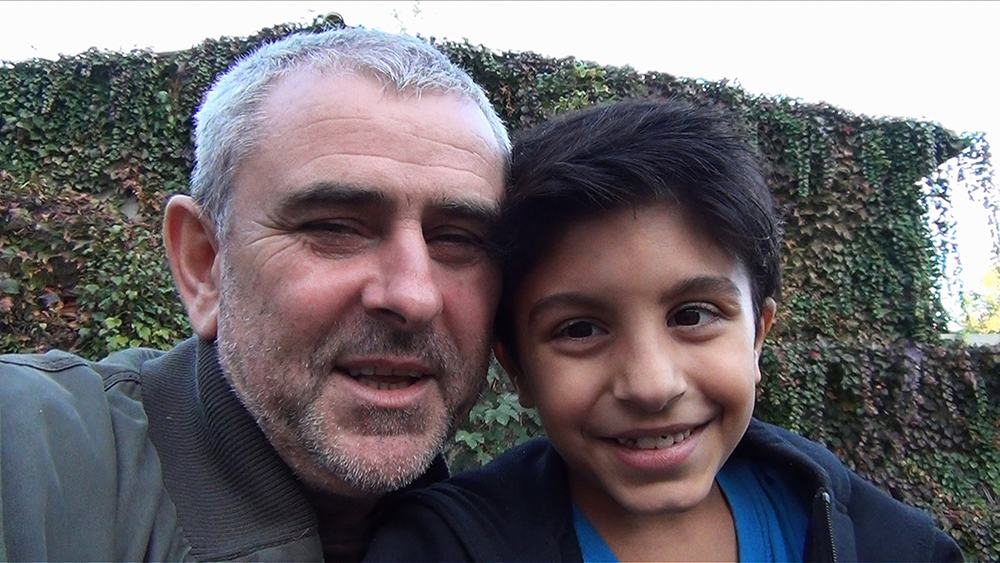If you are a subscriber to Broadcast Magazine you can see the following piece on Sean McAllister by George Bevir
Sean McAllister: A Syrian Love Story
Seasoned documentary-maker Sean McAllister talks to George Bevir about filming during the Arab Spring, and why commissioning editors should reject the urge to play it safe.
Having been travelling to Syria since before the uprising in 2011, film-maker Sean McAllister was used to passing himself off as a tourist to avoid attracting the unwanted attention of the Ministry of Information.
But when the revolution swept the country, filming proved more problematic: such was the threat from the Syrian regime that protestors were reluctant to appear on camera because they didn’t want their identities revealed. “It was fucking difficult,” says McAllister, in typically candid fashion. “Even if you used a phone to film, the snipers could get you.”
The testing conditions required an innovative approach. McAllister bought a batch of glasses with built-in HD cameras and dished them out to protestors so they could surreptitiously capture footage of the revolution without being detected.
Involving those he films in the production is a hallmark of McAllister’s work, which he describes as “fly-in-the- soup, rather than fly-on-the-wall”. He embeds himself in the lives of his subjects – or collaborators, as he refers to them – to the extent that they become part of the process, looking after back-up copies of rushes and even working with him on other projects long after a production has finished.
Political prisoners
The downside of the camera glasses was that they didn’t convey this transparency. “What they captured looked like spy-cam footage, and gave it a kind of undercover documentary look, which wasn’t what I wanted.”
The relationship at the heart of McAllister’s latest film, A Syrian Love Story, is that of Amer and Raghda, political prisoners who met in a Syrian prison cell 15 years ago and later married and had children.
The documentary, commissioned by Nick Fraser for the BBC’s Storyville strand and part-funded by the BFI, spans a five-year period that began in 2009, before a wave of uprisings swept across the Arab world. It charts the story of the family as father and mother are jailed for their political beliefs, and ultimately exiled.
Before the BFI agreed to back the project, it wanted to know why it should fund what appeared to be a TV documentary. “I told them it was like one of my favourite John Cassavetes films, Love Streams, with Amer playing the role of Cassavetes and Raghda as Gena Rowlands,” says McAllister.
“There’s drinking and fighting, and it’s about the impossibility of love against the backdrop of a revolution. When I pitched it for one-hour doc slots it was a current affairs film, but now it is more rounded. That was the beauty of filming over five years: it’s a bigger, more theatrical experience.”
McAllister’s films have a habit of morphing into something else. When the story fell through on the film the BBC initially commissioned him to make about Syria, he kept quiet and hung on to the budget, turning his attention to Yemen for what became 2012 Storyville doc The Reluctant Revolutionary. Similarly, funded trips to Greece and the UAE enabled him to visit Beirut and Damascus to catch up with Amer and Raghda.
While he acknowledges that deviating from a broadcaster’s brief is a risky strategy, he wants commissioning editors to be just as fearless. “If we don’t make these creative decisions about how money has to be spent to find the films, how will they ever be born? Not from commissioning editors standing like gods in their ivory towers on six-figure salaries; they ain’t gonna dream up the stories.
“The only people who can find real stories are those who get out there with a camera. Film-makers who take risks need a commissioning editor who is as brave to allow these projects to be born.”
© George Bevir
